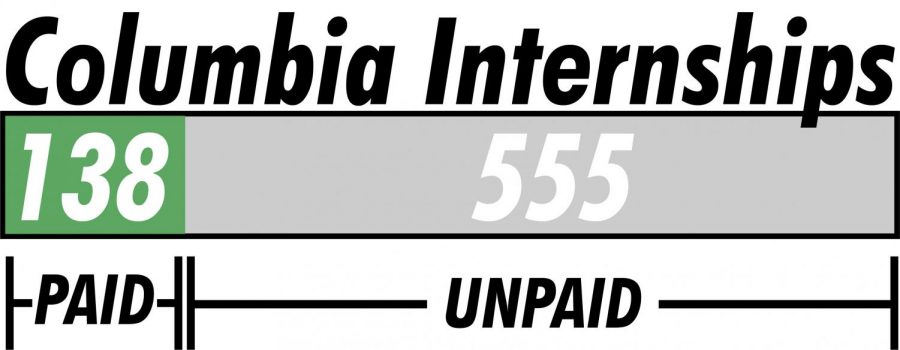Internships can be minefields for unsuspecting students
April 26, 2019
Marley Molkentin, junior multimedia photojournalism major, had trouble getting paid for a recent internship after she “stupidly didn’t sign any type of contract.”
During her time at Columbia, Molkentin gained experience with both internships and freelancing.
While interning for a nonprofit, Molkentin was originally only going to be paid for 75 of the 120 hours she worked.
Molkentin turned to the Career Center after her internship with the nonprofit only paid her for 75 hours worked. She said she needed her internship wages to offset the costs of video production she had done for the organization, and the Career Center was able to assist her in getting paid in full.
Molkentin also thought she had a second internship with an aldermanic campaign, but it turned out to just be a freelance position. She was paid one-third of what she thought she was owed for producing two videos over three months.
“I was confused about how internships worked. I thought, ‘Columbia knows what’s going on and is working with this person [to] give [me] this internship opportunity,’” Molkentin said, referring to her early experiences. “It’s not really an internship. It’s not guided; there’s no schedule.”
Internship and Career Advisor Jennifer Halperin said the Career Center urges students to take paid and unpaid internships for college credit so Columbia can hold employers accountable under the Fair Labor Standards Act guidelines. The guidelines help ensure students are treated fairly and the positions are helping them build their portfolios.
Twenty percent of the 693 internships taken for credit at Columbia during the 2017–2018 school year were paid, according to Assistant Director of Internships and Career Advising Laura Daniels.
Senior multimedia journalism major Megan Perrero stressed the value of studying contracts before signing them and consulting resources, such as the company’s human resources representative. Perrero added that students can contact representatives at the Career Center who can advocate on a student’s behalf if the contract’s standards are not met.
“People should not be afraid to step away from something that’s not working out,” Perrero said.
Internships not taken for credit are not vetted through the Career Center, which sometimes allows freelance jobs that do not meet mandatory educational or mentoring standards to slip through, Halperin said.
“When [companies] want a student to do free work, they’ll call it an internship,” Halperin said.
In order to avoid allowing businesses to take advantage of students, Columbia uses Handshake, a job and internship hiring platform. Handshake flags employers who are questionable based on a number of factors, including student surveys about their past experiences with the company, Halperin added.
“At the Career Center, it’s a constant goal of ours to work with employers to try to create paid opportunities,” Halperin said.
Sophomore communications major Jason Ritter said Career Center staff played a major role in finding the right opportunity for him as an unpaid social media intern at public relations and marketing firm ext.54.
Despite lacking compensation for his work, Ritter said he did not regret the invaluable connections and transferable skills he gained from the internship.
Above all else, Ritter advised students to choose opportunities they will genuinely enjoy.
Correction 5/1/19: A previous version of this story contained a graphic with the incorrect number of unpaid internships. The graphic has been updated to have the correct number. The Chronicle regrets this error.
Correction 5/20/19: A previous version of this story said Molkentin was not compensated for her work during her internship and listed a freelancing opportunity as a second internship. The Chronicle regrets these errors.








